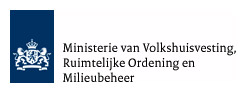Interview with Christine von Weizsäcker, president of WECF’s Board of Trustees
Biologist, researcher, activist and negotiator, dedicated to women, the environment and the role of grandmothers
25.02.2011 |Chantal van den Bossche

Christine von Weizsaecker, WECF President. Picture: Pauke van de Heuvel
Christine is president of Ecoropa (European Network on Ecological Reflection and), co-founder of Diverse Women for Diversity, board member of CBD-Alliance (international alliance of NGOs attending the negotiations of the UN-Convention on Biological Diversity and its Cartagena Protocol), she is member of the Federation of German Scientists, the German Society for Human Ecology and the newly founded European Network of Scientists for Social, and Environmental Responsibility. She has served in the past on the Advisory Committee on Sustainable Development of the Protestant Churches in Germany, the Advisory Committee of the the German Consumer Testing Group promoting the inclusion of environmental criteria; the Scientific Advisory Committee on Consumer and Food Policy of the German Ministry for Food, Agriculture and Consumer Protection co-authoring its Guidelines for Sustainable Consumption.
We asked her to tell us about her work and WECF. What activities are you currently involved in?
Today I am at the board meeting of WECF. Tomorrow I will travel to Brussels and will give the 76th Aurelio Peccei Lecture on “The Biodiversity Crisis and its Governance. The next morning I will leave for Berlin for an event on “Biofuels” in the framework of “The Day of Organic Farming” at the International Agricultural Fair “Green Week” in Berlin. I will also take the opportunity to meet several Ecoropa members during these three days. I will then finalize the administrative tasks for a small project that is very dear to me: creating sustainable livelihoods for desperately poor grandmothers taking care of their grandchildren in a few communities in Ethipia. These old women, many of them widowed by past civil war, are worst aftected by historical turmoils, rural exodus, disruption of family structures, tribal customs that did not allow women to plow but linked ownership of land to plowing, recent land grabbing by investors and loss of common grazing ground. Ecoropa is collecting small contributions, many from old women in Germany, and guarantees the transfer to newly founded Women Associations in Ethiopia. From small grass-roots level to small grass-roots level. Additionally, I will continue with my involvement in the negotiations of the Convention on Biological Diversity and its Cartagena Protocol on Biosafety.
All of last October, you were in Japan for the Tenth Conference of Parties to the Convention on Biological Diversity. What was your role?
Formally, I went to Nagoya, Japan, as a representative of Ecoropa and WECF to prepare for and participate in the COP-10 of the Convention on Biological Diversity, and the COP-MOP5 of the Cartagena Protocol on Biosafety. Nagoya was formally a large success, as two new protocols, meaning international legally-binding agreements, were agreed on: Firstly, the Nagoya-Kuala Lumpur Protocol on Liability and Redress to the Cartagena Protocol on Biosafety which holds those who cause damage due to genetically modified organizms liable and establishes the polluter-pays-principle for GE. Secondly, the Nagoya Protocol on Access and Benefit-sharing which is meant to stop biopiracy. Since many years I had followed the process leading to these protocols. In the last round of negotiations I have been elected together with a colleague from Third World Network as the two civil society representatives actively participating at the central table of the negotiations.
Has this contributed to the achievements in Japan?
Successes always have many, many fathers and mothers. And at the end of the day, official delegates representing their countries decide. As always I have given advice on text, written short pages of information and comment for delegates, countered the arguments of Monsanto and the International Chamber of Commerce. In addition, due to the short duration of Japanese visas for people from developing countries, there was a need for precise notes of the negotiations, including all day and night sessions, to be available for those representatives of civil society and those delegates of developing countries who had to miss part of the negotiations. This allowed them to immediately tune in the moment they arrived. And for me it meant incessant typing. At the end of the day, the quality of international agreements depend on the political will to implement them. And this means that the work goes on. Who but the citizens themselves can create strong political will?
What is your contribution to other policy processes WECF is involved in?
Since last year Iam engaged in the preparations for the Rio+20 United Nations Conference on Sustainable Development which will take place in 2012, 20 years after the famous Earth Summit in Rio. I was appointed as one of the experts of the Advisory Group on International Environmental Governance, which has been set up to give input to the UNEP high level committee of government representatives preparing this summit. Rio+20 will decide whether the environmental pillar within the United Nations will be strenghtened or left to collapse. WECF was created during the first Earth Summit in Rio in 1992 to give a voice and organisation to the women’s major group, one of the 9 major groups identified in Rio’s “Agenda 21” to promote and implement sustainable development at all levels. Currently, WECF co-chairs the women’s major group for the preparations of Rio+20.
What can we learn from Nagoya for the discussions on a reform of International Environmental Governance (IEG)?
It should be mentioned that the negotiations of the new ABS-protocol granted
a degree of participation which certainly is a case of best practice in UN-negotiations. They took place in the “Vienna Plus-Setting”. The “Vienna Setting” was invented for the final negotiations of the Cartagena Protocol on Biosafety. A limited number of representatives of each UN-Region, selected by that Region, were sitting at the central round table negotiating. The meeting was otherwise open-ended, i.e. all other delegates and other participants could witness the negotiations in the room. “Vienna Plus” means an addition to the regional representation of official delegations: two seats at the central table were given to elected representatives of indigenous peoples, civil society, business and academia. They could make interventions. We can learn from this successful negotiation format when we make proposals for a reform of IEG. It is a counter model to green room negotiations where the most “powerful” nations meet in closed meetings of unaccountable composition and decide on “international governance”. The latter model rarely bridges the North-South divide in a solid and sustainable manner.
Related News
Time for EU to walk the talk on 2030 Sustainable Development Agenda
As part of SDG Watch Europe WECF calls for a consequent implementation of the Sustainable Development Goals by the European Union.
06.06.2016
10 years WECF and Ecosan - A film for those who don't know Ecosan
From Romania to Kyrgyzstan: 10 years WECF experience with ecosan toilets in Eastern Europe, the Caucasus and Central Asia.
21.05.2013 | WECF
Project Nesting available in three languages on Facebook!
Come have a look at www.facebook.com/projectnesting!
15.05.2013 | WECF
CSD 19: Women's Intervention for the Opening Plenary
Submission for intervention for the opening plenary by the organising partners of the Women’s Major Group; VAM – Voices of African Mothers, and WECF Women in Europe for a Common Future
02.05.2011 | Sascha Gabizon
Interview with Christine von Weizsäcker, president of WECF’s Board of Trustees
Biologist, researcher, activist and negotiator, dedicated to women, the environment and the role of grandmothers
25.02.2011 | Chantal van den Bossche





































